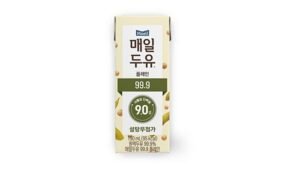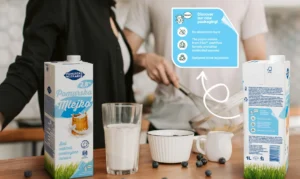Friday, 20 February 2026
Role of Nutraceuticals in Improving Health and Disease Conditions
By Dr. Anish Desai, MD. FCP. PGDHEP DIRECTOR, INTELLIMED HEALTHCARE SOLUTIONS, Chief – Expert Medical & Scientific Advocacy Board, ENAC Nutraceuticals are composed of bioactive ingredients such as vitamins, minerals, fibres,…

By Dr. Anish Desai, MD. FCP. PGDHEP DIRECTOR, INTELLIMED HEALTHCARE SOLUTIONS, Chief – Expert Medical & Scientific Advocacy Board, ENAC
Nutraceuticals are composed of bioactive ingredients such as vitamins, minerals, fibres, proteins (including enzymes), probiotics (including prebiotics and synbiotics) and amino acids that assist in prevention and management of diseases including hereditary problem, nutritional disease and allergies. The nutraceutical industry has been witnessing innovation in the form of delicious chewable tablets, gummies, and lozenges, as a popular alternative to traditional pills for their health benefits, shelf life, quality and safety. There is ever-increasing burden of chronic diseases and it is being observed that millennial consumers may prefer nutraceuticals over prescription drugs for combating different disorders including as acne, baldness, nail disorders, diabetes and arthritis.
Nutraceuticals are playing an increasingly important role in evidence-based medicine. The benefits are limitless and new uses for nutraceuticals are being continuously researched. From physiological to psychological health, they have the potential to not only to treat a wide array of illnesses but also boost energy, relieve anxiety, improve overall health, slow-down ageing and enhance sleep quality. Nutraceuticals can be used an adjunctive treatment along with standard of care in many disease conditions. The global nutraceuticals market is expected to grow by $180.38 billion during 2020-2024, progressing at a CAGR of almost 9% during this period, according to a report by Technavio. Awareness about health and preventive strategies have to lead to conscious improvement in immunity and immune health, thus increasing the demand for nutraceuticals across the globe. An ASSOCHAM report of 2018 predicted the Indian nutraceuticals market to grow from $4 billion in 2017 to $18 billion in 2025.
Rising awareness about fitness and health has encouraged people to lead healthier lifestyles thus further increasing the demand. Nutraceuticals have been shown to elicit health promoting, preventive and therapeutic effects toward many different pathological conditions, such as diabetes, hypertension, arthritis and obesity and allergy. Sources of nutraceutical include microbial enzymes (eg. hemicellulose-mushroom, lactase -bacteria), plant ezymes (bromelain-pineapple, pectin-cell wall), plant (vitamin C-amla) and fish (omega-3 fatty acid-fish oil). The food sources used as nutraceuticals are all natural and can be categorized as mentioned below.
Category
Examples
Sources
Dietary fiber
celluloses, hemicelluloses, gums and pectins, lignin, resistant dextrins and resistant starches
fruits, oats, barley, beans, cabbage
probiotics
Lactobaccilus strain, bifidobacterium strain
curd, beverages, yogurt, cheese and pickles
Prebiotics
Inulin, Oligosaccharides – Raffinose, stachynose
chicory roots, banana, tomato, alliums are rich in fructo-oligosaccharides
Polyunsaturated fatty acids
α-linolenic acid (ALA), eicosapentanoic acid (EPA), docosahexanoic acid (DHA).
flaxseed, soybeans, canola, some nuts (e.g. walnuts) and red/black currant seeds
mackerel, salmon, herring, trout, blue fin tuna and in fish-oils
Antioxidants
Selenium,
vitamin C and vitamin E
Brazil nuts
Citrus fruits
Polyphenols
flavonols, flavones, flavan-3-ols, flavanones and anthocyanins.
Tea, legumes,
Spices
Curcumin, capsaicin, allicin
Turmeric, garlic, ginger, fenugreek, onion
Obesity management: Treatment with natural obtained phytonutrients is currently in practice to develop effective strategy to control obesity having fewer side effects. Literature suggests that garlic, curcumin, dietary fibers, pycnogenol and probiotics may be effective in managing obesity. Polyohenols, anthocyanins, tannins have an inhibitory effect on several digestive enzymes thus helping in postprandial hyperglycemic and hyper-insulinemia.
Cardiovascular disease: phytosterols obtained from natural sources (vegetables, nuts, seeds) improve serum lipid profile by lowering triglycerides and LDL. Polyphenols are known to improve cardiac health by improving HDL and LDL, preventing myocardial ischemia and platelet aggregation. Similarly, flavonoids, Spirulina, probiotics and soy proteins have multiple cardiac benefits.
Diabetes: Some of the nutritional supplements with extensive clinical data include fenugreek, nigella sativa, curcumin, L-carnitine, α- lipoic acid, omega-3 fatty acids, berberine, chromium, soy and phytoestrogens. These help in reducing insulin resistance and subsequently help in reaching target HbA1c and fasting blood glucose levels.
Neurodegenerative disease: Nutraceuticals with fewer side effects and good safety profile may be a better option for the treatment of Alzheimer’s disease as well as Parkinson’s disease as opposed to current pharmacological strategies which have more side effects.
Immune function: vitamin C, vitamin D, selenium, zinc, glutathione and probiotics are well studied nutraceuticals for boosting the immune system and preventing certain infections. Their potential antioxidant, immunomodulatory, anti-inflammatory and antiviral property boost the overall health of the body.
Cancer: Few in vitro studies have documented the role of nutraceuticals having anti-carcinogenic actions. Dietary antioxidants possess a wide range of prophylactic as well as therapeutic actions. More research is needed in this area.
Bone and joint health: calcium, vitamin D, glucosamine, chondroitin, omega-3 fatty acid, curcumin, devils claw, rosehip are some of the nutraceuticals that have good clinical efficacy and safety in disorders like osteoarthritis, rheumatoid arthritis, osteoporosis and even fractures. Some nutraceuticals are very effective in the form of topical oil such as nigella sativa, chamomile and olive oil.
Gastrointestinal health: senna, frangula, aloe, rhubarb and cascara have been historically used for constipation. People with diarrhea are suggested to take herbal drinks like peppermint tea, rosemary, lemon, orange, and catnip to get relief. Certain flavonoids show anti-ulcer activity and help in prevention of gastric mucosal lesions. Aloe-vera and curcumin may be effective in improving healing of ulcers.
Central nervous system (CNS): Common vitamin and mineral supplements used for migraine are magnesium, riboflavin, co-enzyme Q10. Essential oils from some aromatic plants like lavender, sandalwood, eucalyptus etc. are mood enhancers and anti-depressants.
Nutraceuticals for Covid-19: Data indicates that Zinc, N-acetylcysteine, omega-3 fatty acids Vitamin D and vitamin C are effective and safe nutraceuticals for the management of Covid-19. Research on curcumin, selenium and glutathione is also under process.
Drivers for industry growth:
- Lifestyle: People with a desk-job are less-exposed to sunlight, hence they may not have optimum levels of vitamin D. People that choose to be vegetarian or vegan are at a higher risk of vitamin B12 deficiency. Such people may need dietary supplements to fill the gap and have optimum levels of mcironutrients.
- Changing consumer preferences: A clear shift can be observed from curative to preventive care attributed to the pandemic. Increasing awareness about the role of immunity and dietary supplements has led to significant demand. Even after the pandemic has reduced in its intensity, preventive healthcare strategies such as immune boosting nutraceutical supplements may become a part of people’s everyday lives.
- Some nutraceuticals like zinc, vitamin C and vitamin D have shown efficacy in managing Covid-19, thus some physicians have been prescribing these supplements to patients with Covid-19.
- Pill fatigue: Nutraceuticals are available in several forms, like, tablets, capsules, gummies, purified extracts and even beverages, thus making them easy to use by all age groups. Gummies are catching up as an option and may be a good alternative for people having difficulty swallowing tablets and capsules. Different nutraceuticals are being available in the gummy form that is widely accepted by children.
- In India, there are large number of people who are undernourished, anemic and deficient in certain micronutrients. The government has undertaken several measures to reduce the same through various initiatives including drives and campaigns. Hence, the nutraceuticals market in India is poised for growth.
Conclusion:
There is growing interest for the role of nutraceuticals in reducing health problems as well as systemic diseases. Considering the current scenario, India’s nutraceuticals industry has the potential to grow at a lightning speed. Research and development is at the peak in this emerging nutraceutical field. The greatest scientific need pertains to standardization of the nutraceutical compounds or products carefully develop and execute clinical studies to provide the basis for health claims to produce an impact on the consumers as well as on the nutraceutical companies. High quality, purity, safety and efficacy are the pillars of evidence-based nutraceuticals.
Technology
Tetra Pak extends paper-based barrier packaging to high-speed packaging lines in Asia
Feb 19, 2026 | Company News
Food Testing
Redefining Trust in Organic Foods through Independent Testing
Feb 13, 2026 | Food Safety and Testing
AFNOR International Eyes Global Food Safety Growth with HACCP Group Takeover
Feb 04, 2026 | Australia
More Popular
Strong Q4 Drives Coca-Cola Consolidated to Record FY2025 Results
Feb 20, 2026 | Beverages
The Kraft Heinz Company Appoints Nicolas Amaya as President, North America
Feb 20, 2026 | Company News
Orkla Food Ingredients acquires Senna
Feb 20, 2026 | Company News






